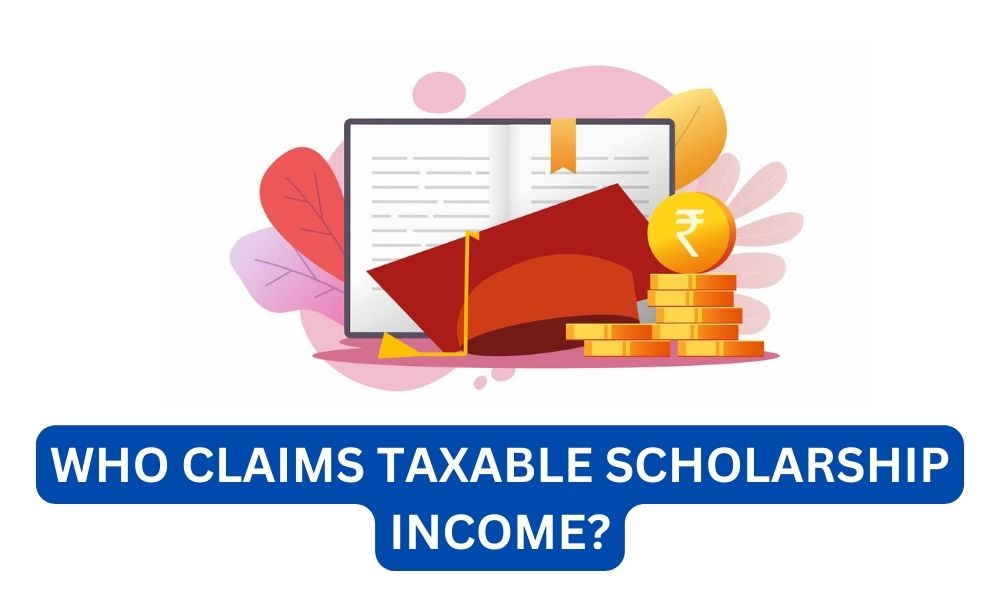When it comes to scholarships, many students are thrilled to receive financial assistance to pursue their education. Scholarships can cover tuition fees, books, and even living expenses, making them a valuable resource for students. However, it’s important to understand the tax implications of scholarships, as not all scholarships are tax-free. In this article, we will explore who claims taxable scholarship income and provide valuable insights into this often misunderstood topic.
Contents
Understanding Taxable Scholarships
Before diving into who claims taxable scholarship income, let’s first understand what constitutes a taxable scholarship. According to the Internal Revenue Service (IRS) in the United States, a scholarship or fellowship is generally tax-free if:
- The student is a candidate for a degree at an eligible educational institution
- The scholarship or fellowship is used to pay for qualified education expenses, such as tuition, fees, books, and supplies
However, if the scholarship or fellowship is used for other purposes, such as room and board or travel expenses, it may be considered taxable income. Additionally, any portion of the scholarship that exceeds the qualified education expenses is also subject to taxation.
Who Claims Taxable Scholarship Income?
Now that we have a basic understanding of taxable scholarships, let’s explore who is responsible for claiming this income. In most cases, the student who receives the scholarship is responsible for reporting and paying taxes on any taxable scholarship income. This applies to both undergraduate and graduate students.
Read:Can you get a scholarship for being ambidextrous?However, there are some exceptions to this general rule. If the scholarship is awarded to a student who is not seeking a degree, such as a professional development scholarship or a scholarship for a specific course or program, the responsibility for reporting and paying taxes may fall on the organization or institution providing the scholarship.
Furthermore, if the scholarship is awarded to a student who is not required to file a tax return due to their income level, the responsibility for reporting and paying taxes may also fall on the organization or institution providing the scholarship.
Case Studies: Who Claims Taxable Scholarship Income?
To further illustrate who claims taxable scholarship income, let’s consider a few case studies:
Case Study 1: Jane’s Taxable Scholarship
Jane is an undergraduate student who receives a scholarship to cover her tuition fees. However, she also uses a portion of the scholarship to pay for her room and board. In this case, Jane would need to report the portion of the scholarship used for room and board as taxable income on her tax return.
Case Study 2: John’s Professional Development Scholarship
John is a working professional who receives a scholarship to attend a professional development course. Since John is not seeking a degree, the responsibility for reporting and paying taxes on the scholarship income may fall on the organization providing the scholarship.
Read:Do colleges look at weighted gpa for scholarships?Case Study 3: Sarah’s Low-Income Scholarship
Sarah is a low-income student who receives a scholarship to cover her tuition fees. However, her income is below the threshold for filing a tax return. In this case, the responsibility for reporting and paying taxes on the scholarship income may fall on the organization providing the scholarship.
Statistics on Taxable Scholarship Income
To gain a better understanding of the prevalence of taxable scholarship income, let’s explore some statistics:
- According to the National Association of College and University Business Officers (NACUBO), approximately 25% of scholarships awarded to undergraduate students are taxable.
- A study conducted by the College Board found that the average taxable scholarship amount for undergraduate students in the United States is $3,852.
- In a survey conducted by the IRS, it was found that only 56% of students who received taxable scholarships reported the income on their tax returns.
These statistics highlight the importance of understanding the tax implications of scholarships and the need for proper reporting and compliance.
Key Takeaways
As we conclude this article, let’s summarize the key takeaways:
Read:How Do you get a full ride scholarship?- Not all scholarships are tax-free. Scholarships used for qualified education expenses are generally tax-free, while scholarships used for other purposes may be taxable.
- In most cases, the student who receives the scholarship is responsible for reporting and paying taxes on any taxable scholarship income.
- Exceptions to this rule include scholarships awarded to students not seeking a degree and students who are not required to file a tax return due to their income level.
- Statistics show that a significant portion of scholarships awarded to undergraduate students are taxable, highlighting the need for proper reporting and compliance.
By understanding who claims taxable scholarship income and the associated tax implications, students can ensure they meet their tax obligations and avoid any potential penalties or issues with the IRS. It is always advisable to consult a tax professional or utilize tax software to accurately report scholarship income and navigate the complexities of the tax code.









